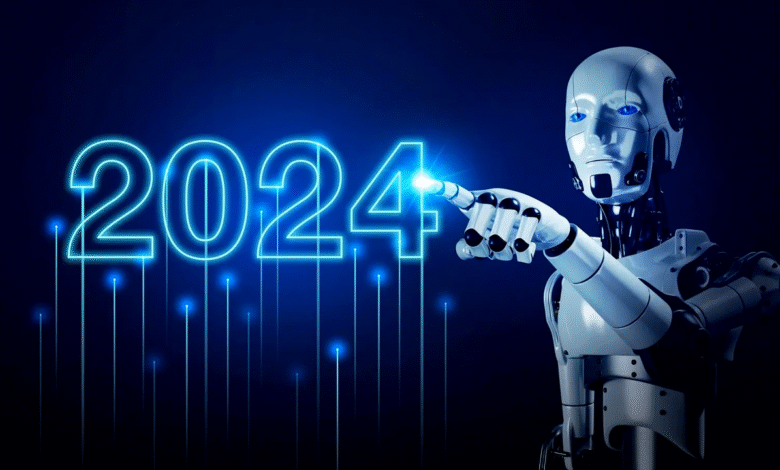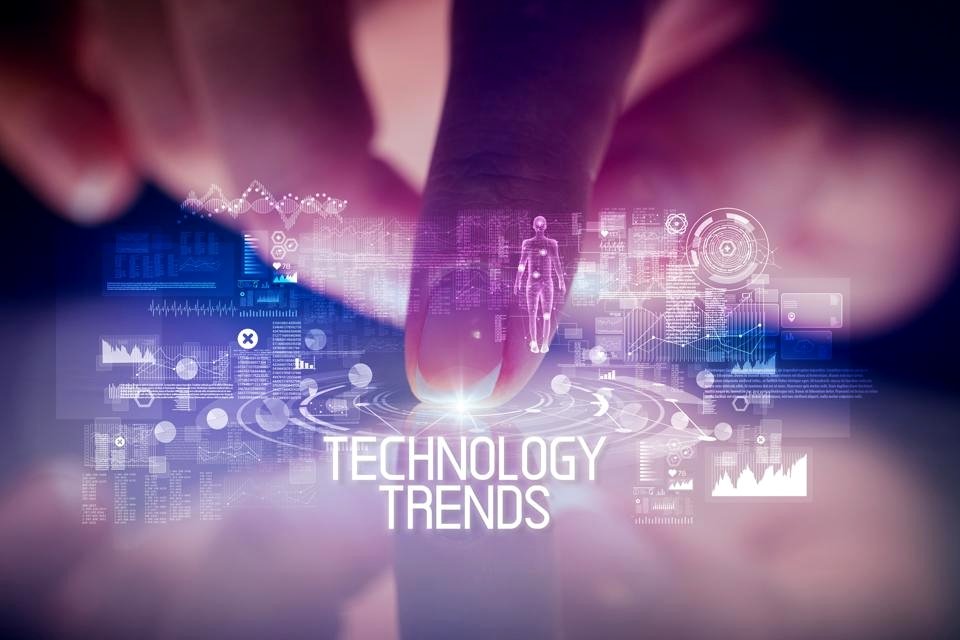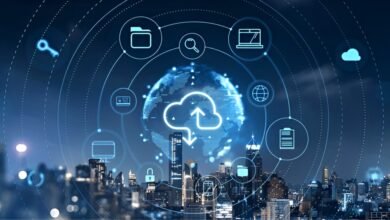
The world of technology is ever-evolving, with innovations constantly reshaping our lives and industries. Staying abreast of emerging trends is crucial for businesses and individuals alike to remain competitive and relevant in today’s fast-paced digital landscape. From artificial intelligence to biotechnology, here’s a comprehensive look at the top tech trends to watch in the coming years.
Read More: Tech Trends in 2024: What’s on the Horizon?
Introduction to Tech Trends

In the ever-evolving world of technology, staying updated with the latest trends is not just beneficial but essential. Tech trends encompass the advancements and innovations that reshape how we interact with the world and pave the way for future developments. In this article, we’ll delve into some of the most promising tech trends that are expected to dominate the coming years.
Artificial Intelligence
Artificial Intelligence (AI) stands out as one of the most transformative technologies of our time. AI systems are becoming increasingly sophisticated, capable of performing tasks that were once exclusive to humans. From virtual assistants like Siri and Alexa to advanced machine learning algorithms powering recommendation engines and autonomous vehicles, AI is revolutionizing various industries. In the coming years, we can expect AI to continue its rapid evolution, driving innovation across sectors such as healthcare, finance, transportation, and beyond.
Internet of Things (IoT)
The Internet of Things (IoT) is a network of interconnected devices embedded with sensors, software, and other technologies, enabling them to collect and exchange data. IoT devices range from smart thermostats and wearable fitness trackers to industrial machinery and autonomous drones. As the number of connected devices continues to grow, IoT will play an increasingly significant role in our daily lives and businesses. From smart homes and cities to industrial automation and precision agriculture, IoT has the potential to revolutionize how we live, work, and interact with our surroundings.
5G Technology
The rollout of 5G technology heralds a new era of connectivity and communication. With significantly faster speeds, lower latency, and greater bandwidth, 5G networks will unlock a host of possibilities for emerging technologies such as augmented reality (AR), virtual reality (VR), and the Internet of Things (IoT). Beyond consumer applications, 5G will also have profound implications for industries such as healthcare, manufacturing, and transportation, enabling innovations like remote surgery, autonomous vehicles, and smart factories.
Augmented Reality (AR) and Virtual Reality (VR)
Augmented Reality (AR) and Virtual Reality (VR) technologies are blurring the lines between the physical and digital worlds. AR overlays digital information in the real world, enhancing experiences such as gaming, navigation, and shopping. VR, on the other hand, immerses users in entirely virtual environments, offering new possibilities for training, entertainment, and collaboration. As AR and VR technologies become more accessible and affordable, we can expect to see widespread adoption across industries ranging from gaming and entertainment to education and healthcare.
Blockchain
Blockchain technology, best known as the underlying technology behind cryptocurrencies like Bitcoin, has the potential to revolutionize various industries beyond finance. At its core, blockchain is a decentralized and immutable ledger that enables secure and transparent transactions without the need for intermediaries. Industries such as supply chain management, healthcare, and digital identity are exploring blockchain applications to streamline processes, enhance trust, and drive innovation.
Cybersecurity
As our reliance on digital technologies continues to grow, so do cybersecurity threats. From data breaches and ransomware attacks to phishing scams and social engineering, cybersecurity incidents pose significant risks to businesses, governments, and individuals alike. In response, organizations are investing heavily in cybersecurity measures such as advanced threat detection systems, encryption, and multi-factor authentication to protect sensitive data and mitigate cyber risks.
Quantum Computing

Quantum computing represents a paradigm shift in computational power. Unlike classical computers that rely on binary bits, quantum computers leverage quantum bits or qubits, which can exist in multiple states simultaneously. Although still in the experimental stage, quantum computing has the potential to solve complex problems exponentially faster than traditional computers, with applications in areas such as cryptography, optimization, and drug discovery. As quantum computing technology matures, we can expect to see breakthroughs that revolutionize fields ranging from finance and healthcare to materials science and artificial intelligence.
Health Tech Innovations
Advancements in health technology are transforming patient care and diagnostics. From wearable devices that monitor vital signs to telemedicine platforms that enable remote consultations, technology is enhancing healthcare accessibility, efficiency, and outcomes. Innovations such as artificial intelligence, genomics, and precision medicine are driving personalized healthcare approaches tailored to individual patients’ needs, ushering in a new era of preventive and predictive medicine.
Green Technology
In the face of climate change and environmental degradation, green technology offers sustainable solutions to pressing global challenges. Renewable energy sources such as solar, wind, and hydroelectric power are increasingly replacing fossil fuels, reducing carbon emissions and mitigating environmental impact. Additionally, innovations in energy storage, smart grid technology, and sustainable agriculture are contributing to a greener and more sustainable future, paving the way for a cleaner and healthier planet for future generations.
Robotics
Robotics technology is advancing at a rapid pace, with applications ranging from manufacturing and logistics to healthcare and entertainment. Collaborative robots or cobots are working alongside human workers in factories, while autonomous drones are revolutionizing industries such as agriculture, construction, and delivery services. As robots become more sophisticated and versatile, they are reshaping the future of work and enhancing productivity across various sectors, driving efficiency and innovation.
Edge Computing
Edge computing decentralizes data processing and storage, bringing computing resources closer to the source of data generation. By reducing latency and bandwidth usage, edge computing enables real-time data analysis and decision-making, making it ideal for applications such as autonomous vehicles, smart cities, and industrial IoT. Edge computing also enhances data privacy and security by processing sensitive information locally rather than transmitting it to centralized servers, ensuring faster response times and greater reliability.
Biotechnology
Biotechnology encompasses a wide range of technologies that leverage biological systems and organisms to develop innovative products and solutions. From gene editing and synthetic biology to bioinformatics and regenerative medicine, biotechnology has transformative potential across healthcare, agriculture, and environmental conservation. Advances in biotech research are paving the way for breakthroughs in disease treatment, food production, and environmental sustainability, offering promising solutions to some of the most pressing challenges facing humanity.
Smart Cities

Smart cities leverage technology to enhance urban infrastructure and services, improve sustainability, and enhance the quality of life for residents. IoT sensors, data analytics, and artificial intelligence enable smart city solutions such as traffic management, waste management, energy optimization, and public safety. By harnessing the power of technology, smart cities aim to address urban challenges and create more efficient, resilient, and livable environments, ensuring a better quality of life for residents while minimizing environmental impact.
Read More: AI in Arts: How Technology is Reshaping Creative Expression
FAQs
- How can businesses leverage emerging tech trends to stay competitive? Embracing emerging technologies such as artificial intelligence, blockchain, and IoT can help businesses streamline operations, enhance customer experiences, and gain a competitive edge in their respective industries.
- What are some potential challenges associated with adopting new technologies? Challenges may include cybersecurity threats, regulatory compliance, workforce training, and ethical considerations related to data privacy and AI bias.
- How can individuals prepare for the future of work in a tech-driven economy? Lifelong learning, adaptability, and acquiring digital skills are essential for individuals to thrive in a rapidly evolving job market. Embracing continuous learning and staying updated on emerging technologies can help individuals future-proof their careers.
- What role does government regulation play in shaping the adoption of new technologies? Government regulation plays a crucial role in balancing innovation with consumer protection, privacy rights, and national security. Regulatory frameworks must evolve to address emerging tech trends while ensuring ethical and responsible use.
- How can technology be harnessed to address global challenges such as climate change and healthcare disparities? Technology can play a transformative role in addressing pressing global challenges by facilitating collaboration, innovation, and resource optimization. Solutions such as renewable energy, telemedicine, and data-driven policymaking can contribute to building a more sustainable and inclusive future.
The Final Words
The future of technology is filled with promise and potential, with emerging trends poised to reshape how we live, work, and interact with the world around us. From artificial intelligence and blockchain to biotechnology and smart cities, the possibilities are limitless. By staying informed and embracing innovation, we can harness the power of technology to address some of the most pressing challenges facing humanity and create a better future for generations to come.








One Comment